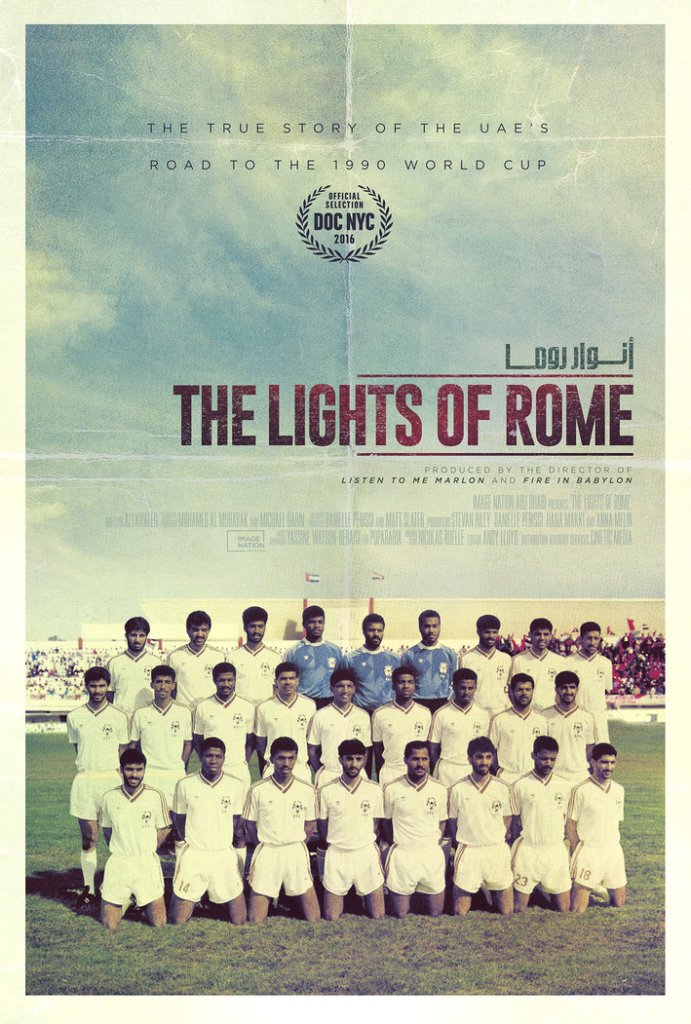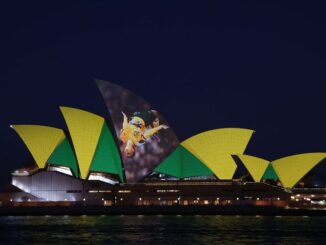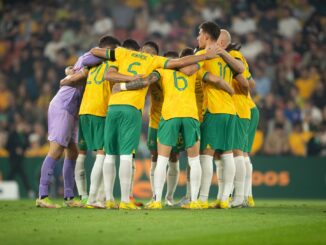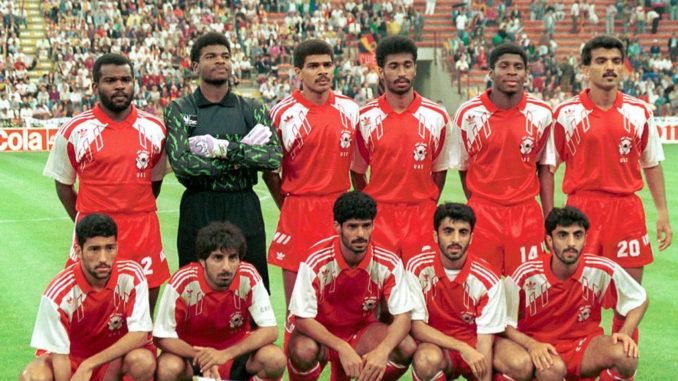
Thirty years to the day that Emirati football history was created, Ali Khaled looks back on that historic day in Singapore.
It would be wrong to say the dream was dying. There had been no dream to begin with.
At an almost empty stadium, underneath the lashing rain and with weary, tired legs on a muddy pitch, the UAE were minutes away from a 1-0 defeat to China and, in all likelihood, the end of any hopes of making the 1990 World Cup.
Moments later, they had recorded arguably the most important win in their history, certainly at the time, setting them on the road to the country’s greatest ever football achievement.
Only in those delirious moments after at the final whistle were they finally able to start dreaming of rubbing shoulders with the world’s best.
When the UAE embarked on the final qualifying group for the Italia 1990, taking place in Singapore, expectations were close to non-existent. To say they were the underdogs would be kind, and in many ways they were the least fancied team in the six-nation group.
Sheikh Hamdan bin Zayed Al Nahyan, the president of the UAE Football Association and the man who had shaped Emirati football over the previous decade, had resigned in the build-up to the campaign, leaving the squad a rudderless ship.
The uncertainty and negativity surrounding the trip to Singapore had trickled down to the players, who had looked upon Sheikh Hamdan as a “spiritual father”.
To add to the farcical nature of their departure, two players almost missed the flight, and, in the days before mobile phones, were luckily found having lunch after they assumed the plane had already taken off without them.
The UAE’s participation was almost nothing more than a “contractual obligation”, some of the players joked years later.
But one man believed. Legendary Brazilian coach Mario Zagallo, who had replaced countryman Carlos Alberto Parreira the previous year.
Parriera had almost pulled off the impossible four years earlier when the UAE conceded an injury time goal against Iraq to deny them a virtual passage to the 1986 World Cup in Mexico (the final hurdle against Syria was expected to be a formality for the UAE or Iraq).
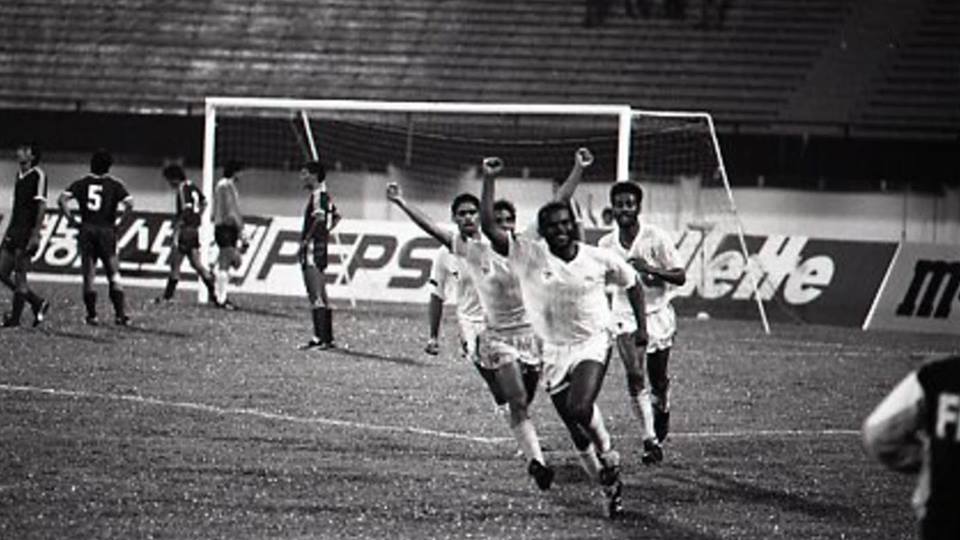
The agonising elimination had hit a fine UAE team hard, and there was a sense of a once-in-a-lifetime opportunity missed. It’s not often underdogs get given second chances.
The squad that flew out to Singapore was not held in the same esteem as the 1985 one, though it retained remained many of the same players.
This rag-tag team of amateur players, made up of policemen, airport executives and civil servants and others may have had no obvious strengths, but they knew how to dig in and fight. And in Adnan Al Talyani, they had a winning card.
As the clock ticked down at the National Stadium in Singapore, centre-half Khalil Mubarak scored with a header to tie the score with three minutes left. A minute later Al Talyani scored with a memorable left-footed strike to seal an unlikely win. Even as the players piled on top of Zagallo, they could not have realised they had changed the course of Emirati football history.
A campaign that had started with a 0-0 draw against North Korea that barely merited mention even in the Emirati sports pages, was suddenly front page news back home.
The momentum from that minor miracle, however, was not built on, at least in any obvious way at the time.
The next match saw the UAE hold Asian champions Saudi Arabia in a 0-0 draw that could best be described as attritional. It was becoming clear that that while this UAE team was organised, and slowly gaining in belief, scoring goals remained a major problem despite the presence of Al Talyani and veteran Al Wasl forward Fahad Khamees.
Elsewhere in the group, South Korea, as expected, were striding confidently towards Italy. The rest of the teams, however, were showing remarkable inconsistency, which meant no clear second favourite was emerging from the pack.
The UAE and Qatar had a chance to stake a claim on October 24, but that too, ended in a 1-1 draw. The UAE had taken a 20th minute lead, Mubarak scoring his second goal of the campaign, before Mansour Sulaiti scored a first half equaliser. Not for the first, or, as it would turn out, last time, the Emirati team had Muhsin Mussabah to thank for a heroic performance in goal.
The following day, South Korea secured their spot in Italy with a 2-0 win over Saudi Arabia, a result that was in many ways ideal for the UAE. They would now face a an already qualified, relaxed opponent in their final fixture, and it meant Saudi Arabia could not catch Zagallo’s men.
Yet four teams – UAE on five points, China on four, Qatar and North Korea on three (back then it was only two points for a win) – still stood a chance of glory on the final day, when three matches would take place simultaneously.
October 28, 1989 would turn out to be one of the most dramatic days in Asian football history.
By then, World Cup fever had well and truly spread across the seven emirates, but an almighty task still needed to be negotiated.
Saudi Arabia, with nothing to play for, belatedly found form and ran out comfortable 2-0 winners against North Korea. The drama was taking place in the other two fixtures.
At Jurong Stadium, the UAE fell behind to a superb curling strike from Hwangbo Kwan after only eight minutes. They needed to find a goal from somewhere, and quickly managed to pull themselves back into the match with a looping header from Al Talyani on 16 minutes.
South Korea clearly were never going to give the UAE an easy ride, and at half time the score stood at 1-1, with Qatar and China scoreless in the other decider at the National Stadium.
As things stood, with the UAE on six points, China on five and Qatar on four, the Emiratis were heading to the World Cup. However, there were many permutations that could see them eliminated, including wins for China and Qatar, should they lose to the Koreans.
Al Talyani joked years later, that with conflicting reports coming in from the other match, the UAE’s game plan was swinging between defensive caution and desperate attacks.
The UAE, and Mussabah again, defended heroically in the second half. The match, again played in wet, muddy conditions, trudged towards a draw.
On 76 minutes Ma Lin gave China the lead, and hopes of a first World Cup participation.
As both matches entered their final minutes, the UAE needed a goal, or a miracle in the other match.
And they got one.
Qatar’s Mahmoud Soufi scored an equaliser on 87 minutes, and suddenly the UAE were back on track. They only needed to hang on for a few more seconds and pray that China did not score a late goal. The emotional scars of that defeat Iraq four years earlier had not healed yet.
But they needn’t have worried.
Mansour Muftah, Qatar’s greatest ever footballer, scored a minute later as, astonishingly, the scenario of China’s loss to the UAE was repeated in identical circumstances.
As the final whistle went at Jurong Stadium, there were a few seconds of uncertainty.
Embed from Getty ImagesEmirati commentator Adnan Hamad, who would achieve fame on the back of this match, recalled 25 years later that a local journalist had stuck his head inside the commentary box to tell him Qatar had won.
His words, as it dawned on him what had just happened, are etched in the memories of all Emirati football fans of that era.
“I can see the lights of Rome now, I can see the lights of Rome now,” a sobbing Hamad screamed.
The UAE, with a squad of players, all of whom were born before the country had even existed, had qualified for their first ever World Cup.
On the pitch, the UAE’s players wept too, and Zagallo was raised on the shoulders of the coaching staff. The celebrations continued in the dressing room as players struggled to express their feelings to an equally emotional Hamad.
Upon on their return to Abu Dhabi, they were invited to the presidential palace to meet the country’s founding father, Sheikh Zayed bin Sultan Al Nahyan. In less than two weeks, they had gone from a group of amateurs that few had faith in, to the UAE’s first Golden Generation.
The draw for the group stages of the 1990 World Cup in Italy could not have been harsher for the UAE.
Eventual champions West Germany, and excellent Colombia and Yugoslavia teams awaited them in Group D, the deathliest of groups of death.
By the time the World Cup had come around Zagallo had been replaced by Parreira, who had managed Kuwait at the 1982 World Cup in Spain.
The Golden Generation may have put the UAE on the world media’s radar, but they remained mostly a mystery. Mussabah even remembered being asked to point out his country on a map.
Without question there was a sense of “happy to be there” about their presence in Italy. But there was a determination to play with pride in what was likely to be three unforgiving matches.
Against Colombia in the first match at Stadio Renato Dall’Ara, Bologna, the UAE performed admirably to go in scoreless at half-time, having missed several presentable chances.
Embed from Getty ImagesAnd even after Edurado Redin broke their resistance five minutes after the restart, they managed to hold on until five minutes from the end, when Colombian captain Carlos Valderrama scored to finally put the match to bed. Next up were mighty West Germany at the San Siro in Milan.
As the players warmed up before kick off a thunderstorm shook the stadium, and the Germans ran to the dressing rooms. The bemused Emirati players wondered what was happening.
Moments later, Lothar Matthaus and co emerged with new metal-studded boots. The UAE players, in their moulded boots, were in for a long afternoon.
Mussabah, again outstanding, and his defenders slipped and slid across the wet pitch but held out until the 35th minute when Rudi Voller scored. Two minutes later, Jurgen Klinsmann made it 2-0, and the expected thrashing was materialising.
But there was one a ray of sunshine amid the storm. In the first minute of the second half Khalid Ismail took advantage of a mistake in the German defence to volley a fine goal past Bodo Illgner. It remains one of the most cherished goals in UAE football history.
The match finished 5-1, but considering the circumstances and the opposition, few begrudged the Emiratis their ovation at the end.
The UAE wrapped up their World Cup with 4-1 loss to Yugoslavia, with Al Thani scoring a powerful header to halve the deficit after 22 minutes. But the team, understandably, had run out of steam.
Embed from Getty ImagesThree matches, three expected defeats. But in many ways it didn’t matter.
“In those days if you qualified for the World Cup, you’d already won,” Parreira said of Middle East teams of that era.
Talyani, Mussabah, Thani, Ismail, Fahad and Nasir Kahmees, the Meer twins Ibrahim and Eissa, Abdulrahman Al Haddad, captain Abdulrahman Mohammed and the rest of the squad had written their names in Emirati, and Asian, football history.
The UAE has produced better players since, and there have been high points that included an AFC Asian Cup final in 1996 and two Gulf Cup triumphs in 2007 and 2013.
But none can come close to that golden day back in 1989 when the UAE’s Golden Generation could see the lights of Rome all the way from Singapore.
